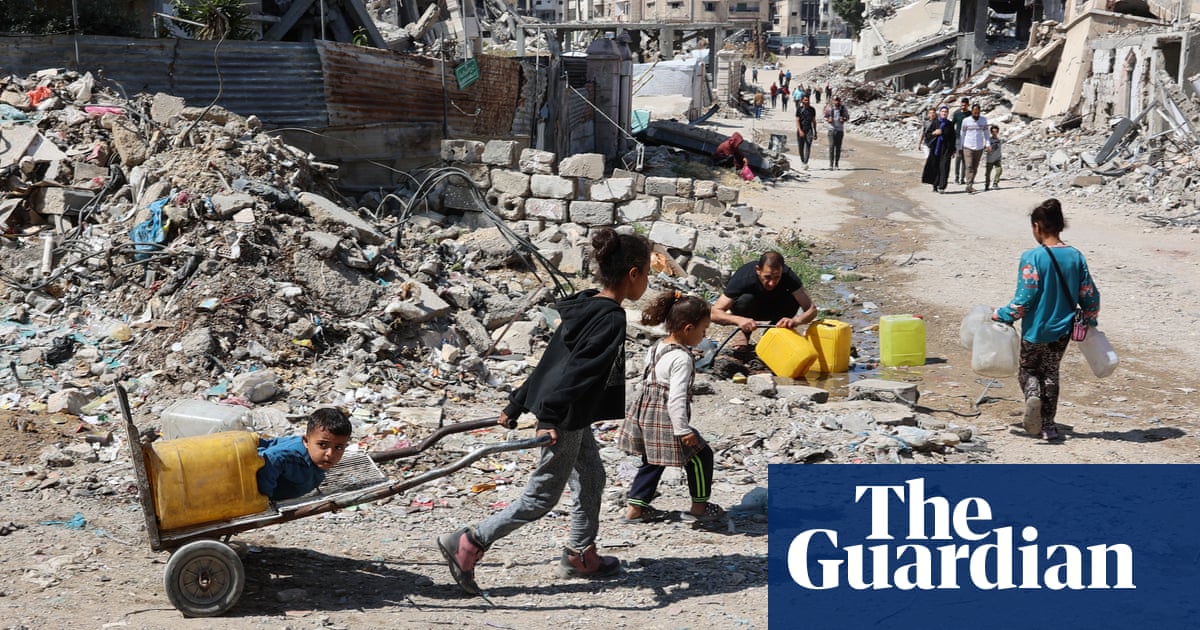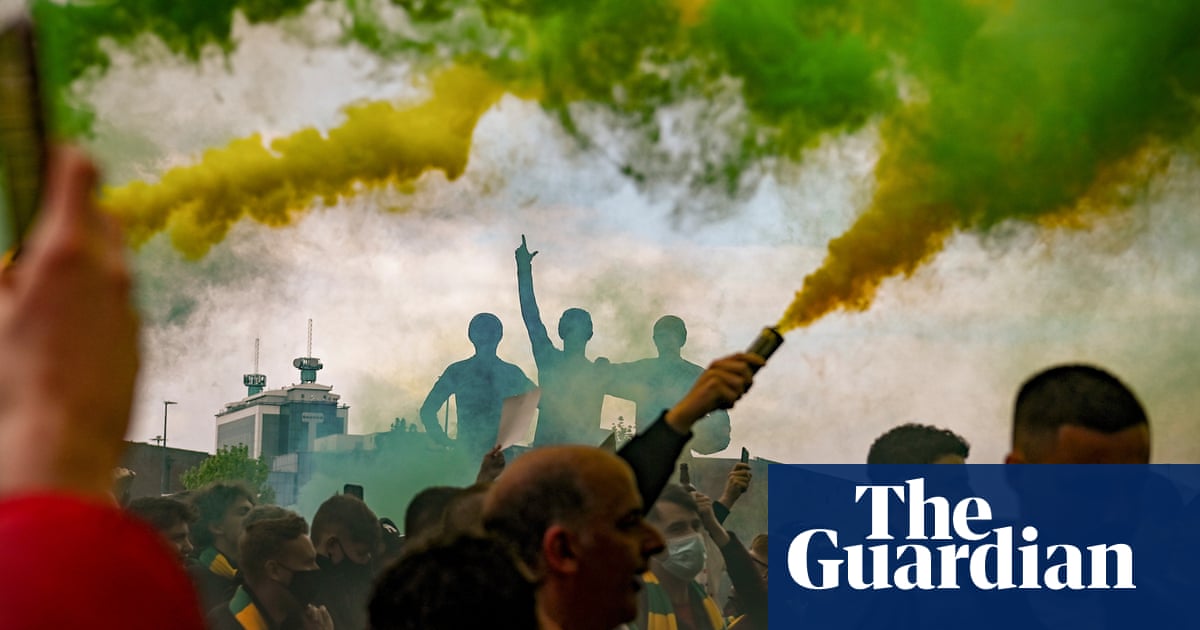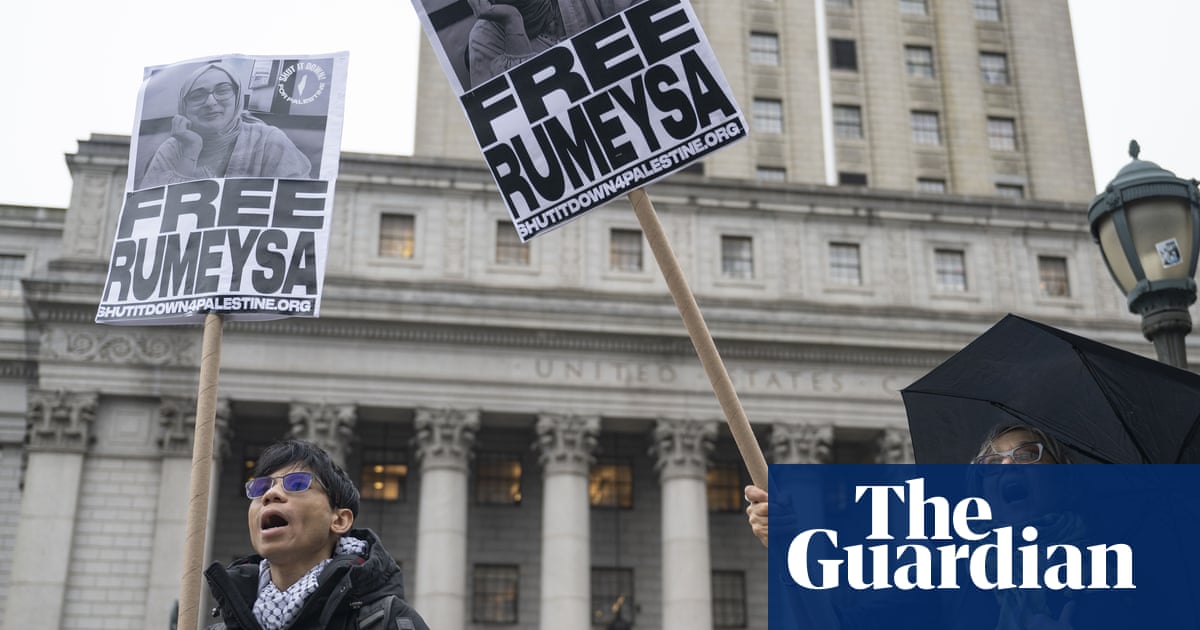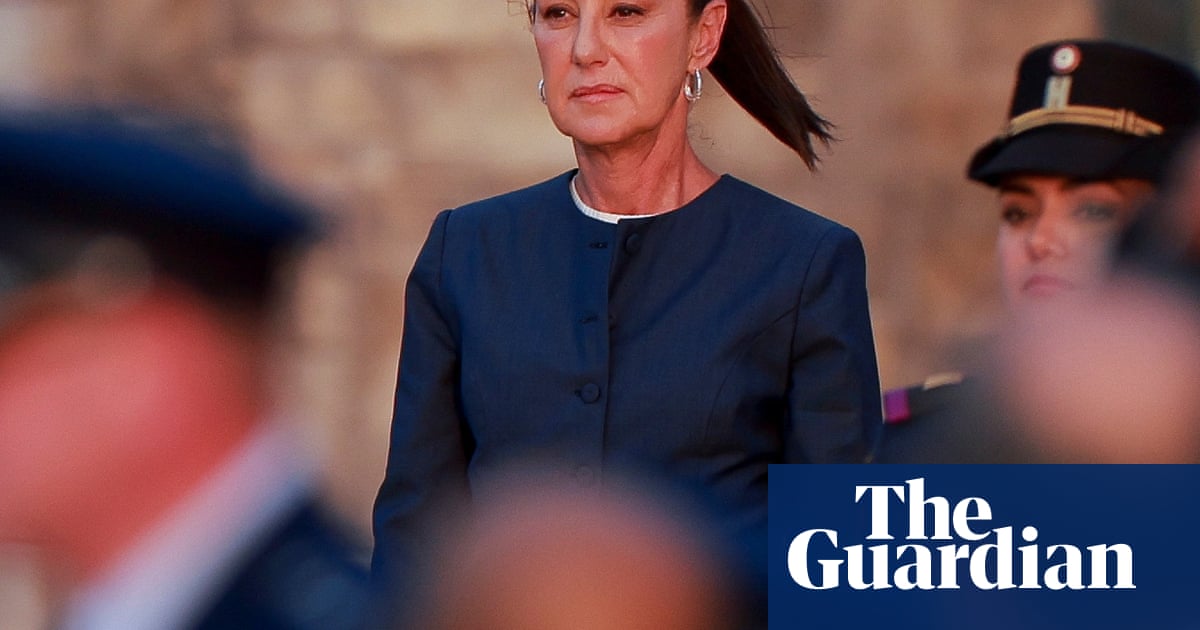As immigration officers moved in on Chicago following Donald Trump’s inauguration, carrying out the president’s plans for “mass deportations”, the city’s schools began to notice waves of absences.
Parents were picking up kids early, or parking a few blocks away – fearful immigration raids will target the pickup rush. In a city that has received thousands of new immigrant students in recent years, teachers made house calls to check in on families that were terrified of leaving their homes. At after-school programs for high-schoolers, educators passed out “know your rights” information for students to give to their undocumented parents.
And all across the city, teachers and parents wondered how long the administration’s ramped-up raids would last before the pressure lifts.
As the Trump administration moves forward with its immigration agenda, rescinding long-standing protections against immigration raids on school campuses and deploying hundreds of federal agents into residential neighborhoods and quiet suburban enclaves, educators across the US are scrambling to maintain safe spaces for students to learn.
In some cities and states with hardline immigration policies, educators and civil rights groups are fighting to keep public education accessible to students regardless of immigration status. In Oklahoma, teachers and elected leaders are fighting the passage of a proposed rule requiring schools to ask for proof of US citizenship during enrollment.
“Children – they can have the capacity to learn algebra only if they have a supportive environment,” said Alejandra Vázquez Baur, co-founder and director of the National Newcomer Network, a national coalition of educators and researchers working to support immigrant children and families. “And so every teacher is already an advocate.”
Amid immigration raids, now teachers also have to grapple with their students’ difficult questions and fears about deportations. “Children don’t see immigration status. Children see friends,” she added. “What happens if students see their classmates plucked out of a classroom? So how do you explain these things to them?”
In Chicago, educators had started preparing months ago for the impact of Trump’s deportation agenda on public school students. Teachers and school administrators coordinated safety plans, and brushed up on their legal rights.
Even so, school staff found themselves rushing to support parents and children who were suddenly terrified to leave their homes, said Ashley Perez, a licensed clinical social worker at schools in Chicago’s Brighton Park neighborhood.
As images of Ice agents ramming down the doors of undocumented immigrants circulated online and in the news, Perez – who is the director of clinical services at Brighton Park neighborhood council – said children began increasingly expressing worry that their parents would be taken away. She recently visited with a family that had not come to school for more than a week after inauguration day, and coaxed them to start sending the kids in by reviewing all the ways that teachers could protect them, and offering to help walk all the kids to and from campus.
“And then we all sort of sat down, the parents and the kiddos, in their dining room to process some of their feelings,” Perez said. “Because there’s so much fear right now … and schools should be a place of stability, not fear.”
In Chicago’s Pilsen – a largely Mexican American neighborhood – Chalkbeat Chicago reported that one school high principal told parents that though the school was doing the utmost to keep children safe, he would understand families’ decision to stay home.
“Please know that while our school is safe and that our students will be protected while they are in school, I also understand that there is a lot of fear and anxiety among our families,” Juan Carlos Ocon, the principal, wrote in a message obtained by Chalkbeat
Roy, a second grade teacher in Chicago’s southwest side, said he has already been fielding questions from his six- and seven-year olds.

Many of his students are new arrivals from Venezuela, who wound up in his classroom after a long, and often traumatic migration. “Last year, one of my students who came here from Venezuela would tell me stories about people not making it in the jungle, while crossing rivers,” he said. “ I was just not prepared for that type of conversation.”
Now that the Trump administration has begun targeting Chicago for large-scale raids and moved to rescind the temporary legal status that has protected thousands of Venezuelans from deportation, Roy’s students are facing a fresh wave of uncertainty and trauma. The Guardian is not publishing his full name and the school where he teaches due to concerns his students and their families could be targeted by immigration enforcement.
Many of his students too young to fully understand what is going on, or why the adults in their lives have been on edge – but others are keenly aware. Not long after Trump was elected, a student from Honduras explained to all his classmates what he means to get deported. “He said, ‘If you’re from Venezuela, you’re going back there. If you’re from El Salvador you’re going back there’ And he pointed to himself, ‘I’m from Honduras, so I’m going back there.’”
Horrified, Roy tried to reassure the kids that he was going to make sure that everyone could stay right where they were, that the school had security that wouldn’t let Ice in. And he tried to joke around a bit. “I said, ‘You know, if they really do send you back, I’ll come too. We’re going to go to the beach,’” he said.
For older children, some of whom are also worried about what they should be doing to support undocumented parents, Stephanie Garcia – the director of community schools for the Brighton Park neighborhood council (BPNC) – said she has emphasized the importance of staying focused on school, “so that their parents don’t have anything extra to worry about right now”.
At after-school programs and community events, the BPNC has also encouraged older kids and young adults to get to know their own rights and make plans with their parents. “It’s difficult to tell a high school freshman, ‘Hey, encourage your parents to have a deportation plan just in case,’” she said. “Unfortunately, here we are.”
It’s a scene playing out in many cities. In New York, teachers are using encrypted group chats to alert each other of Immigration and Customs Enforcement (Ice) sightings, and residents are volunteering to escort the children of undocumented immigrants to and from school. In Los Angeles on Monday, school superintendent Albert Carvalho said that attendance across the school district, the second largest in the US, was down 20%, with about 80,000 students missing. He attributed the absences to both fear and activism, as students participated nationwide protests against Trump’s immigration.
“We have to figure this out,” said Emma Lozano, a pastor of Chicago’s Lincoln United Methodist church and a member of the city’s board of education. “It just gets me because they are hurting our children, our babies. It just isn’t right.”
Parents, too, are struggling to explain the raids to their children. “They’re sad and they’re scared’,” said Lucy, who has an eight-year-old daughter and a 10-year-old son, both enrolled in a public school in Chicago’s Gage Park neighborhood. “And I have to explain racism, and how we are being profiled.”
What has really helped, she said, is recruiting her kids to help her pass out “Know your rights” flyers to families after school. “They get really happy, like, ‘Mom we’re going to help so many people!’”
Though Lucy, her husband and her children are all US citizens, several of their extended family members, cousins and close friends have been living in Chicago without documentation for years. The Guardian is not printing her surname to protect her family from immigration enforcement.
As federal agents descended on the city’s immigrant neighborhoods last week, Lucy made grocery runs for loved ones without documents who were too nervous to leave their homes, and offered to do pickups and drop-offs for parents worried about being apprehended while taking their kids to school.
“I’m nervous, we’re all a little nervous,” said Silvia, a mother of four children including two that are school-aged in Chicago. “But we have the confidence that if something bad should happen to us, we have the support of the community, of the organizations here.”
The Guardian is not publishing Silvia’s surname because she is undocumented, and could be targeted by immigration enforcement. Silvia herself volunteers with the Resurrection Project, an immigrant advocacy organization distributing immigrants’ rights information at local businesses, and helping connect other immigrants to legal aid.
Raids have always happened, she said – this isn’t all that new. “There’s a lot of bad information being passed around right now, and it’s creating panic,” she said. “But if we have good information, we don’t have to be afraid.”
She has charged her eldest son, who is 26 and has a temporary authorization to stay in the US, with taking care of her eight- and 14-year-old children should she and her husband get arrested or deported. They’ve also prepared a folder with all of the family’s important documents, as well as a suitcase with essentials, that their son can bring to them or send to Mexico.
Other than that, she said, she keeps showing up to drop her kids off at school. Her husband is still going to work. “Sometimes if we’re afraid, we end up putting fear in our children, don’t we?” she said. “So we are calm … and we’re keeping the same routine.”

 3 months ago
43
3 months ago
43













































